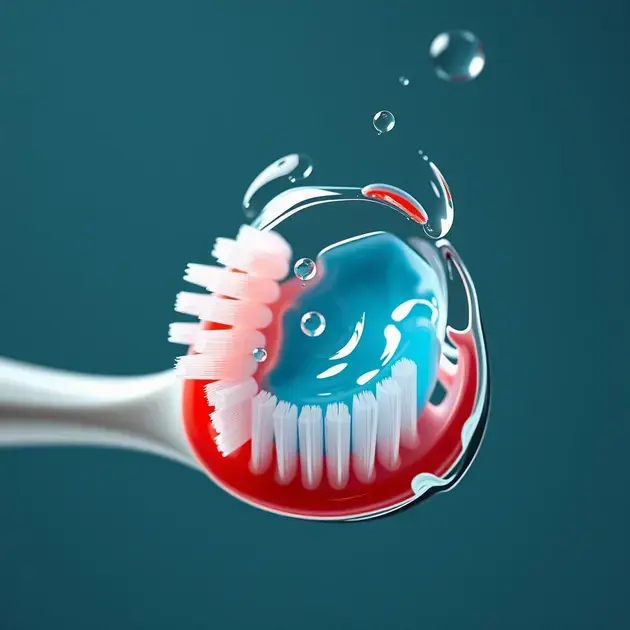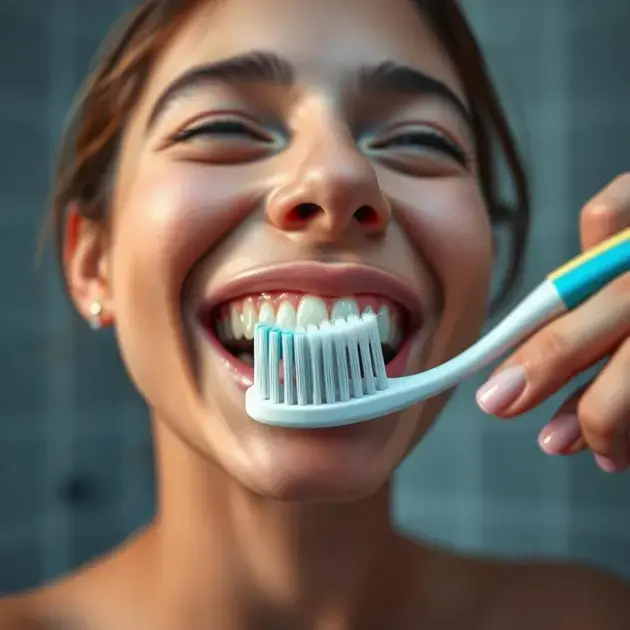Learning how to properly brush your teeth is essential for maintaining good oral health and preventing dental problems. It’s not just about brushing twice a day; it’s also important to use the right techniques to effectively remove plaque and bacteria that can lead to tooth decay and gum disease. Recent studies show that improving your brushing habits can lead to better dental health and also contribute to overall health benefits.
Having a proper toothbrush is a cornerstone of good oral hygiene. Whether you choose manual or electric, what matters is using a toothbrush that feels comfortable in your hand and mouth. It’s recommended that you replace your

How to Choose the Right Toothbrush for Proper Brushing
Choosing the right toothbrush is crucial for maintaining proper oral hygiene. Here are some steps to consider when selecting the ideal toothbrush:
1. Bristle Type
Opt for a toothbrush with soft bristles to prevent damage to your gums and enamel. Soft-bristled brushes are gentle yet effective at removing plaque and debris.
2. Size of the Head
The size of the toothbrush head is important for reaching all areas of your mouth. A smaller head can help access hard-to-reach areas, such as the back molars.
3. Handle Grip
Choose a toothbrush with a comfortable handle grip that allows for easy maneuverability. A good grip can enhance control and make brushing more efficient.
4. Manual vs. Electric
Decide whether a manual or electric toothbrush suits your needs better. Electric toothbrushes can provide more thorough cleaning, especially for individuals with limited dexterity.
5. Consult with Your Dentist
Finally, consult with your dentist for personalized recommendations based on your oral health needs and any specific concerns you may have.
Brushing Techniques for Effective Plaque Removal
Proper brushing techniques are essential for removing plaque effectively and maintaining good oral health. Follow these steps for optimal plaque removal:
1. Angle the Bristles
Hold your toothbrush at a 45-degree angle to the gum line to target plaque buildup along the margins of your teeth.
2. Use Gentle Pressure
Apply gentle pressure while brushing to avoid damaging your gums and enamel. Let the bristles do the work in dislodging plaque and debris.
3. Brush in Circular Motions
Use small, circular motions when brushing to ensure thorough coverage of all tooth surfaces. Focus on each tooth individually for a comprehensive clean.
4. Don’t Forget the Tongue
Include your tongue in your brushing routine to remove bacteria and freshen your breath. Gently brush the surface of your tongue to eliminate odor-causing germs.
5. Rinse and Clean Your Toothbrush
After brushing, rinse your mouth thoroughly with water and clean your toothbrush to prevent the accumulation of bacteria. Store your toothbrush in an upright position to air dry.
Benefits of Improving Your Brushing Habits
Improving your brushing habits can lead to a myriad of benefits for your oral health and overall well-being. Here are some advantages of enhancing your brushing routine:
1. Reduced Risk of Dental Issues
By brushing properly and regularly, you can decrease the risk of developing dental problems such as cavities, gum disease, and bad breath.
2. Enhanced Oral Hygiene
Improving your brushing habits contributes to better oral hygiene, resulting in cleaner teeth, fresher breath, and a healthier mouth overall.
3. Prevention of Plaque Buildup
Regular and effective brushing helps prevent the formation of plaque, a sticky film of bacteria that can lead to tooth decay and gum disease.
4. Improved Confidence
Maintaining good brushing habits can boost your confidence by giving you a brighter smile and the assurance of fresh breath.
5. Overall Health Benefits
Good oral hygiene is linked to better overall health, as oral health is connected to various systemic conditions. By improving your brushing habits, you can positively impact your overall well-being.

Common Mistakes to Avoid When Brushing Your Teeth
Proper brushing is essential for maintaining good oral hygiene, but many people unknowingly make mistakes that can impact the effectiveness of their oral care routine. One common mistake to avoid is using the wrong toothbrush. It’s important to choose a toothbrush with soft bristles to prevent damage to your gums and tooth enamel. Another mistake is not brushing for a sufficient amount of time. Dentists recommend brushing for at least two minutes to ensure thorough cleaning.
Additionally, some people brush too hard, thinking that vigorous scrubbing will remove more plaque. However, brushing too hard can actually wear down the enamel and irritate your gums. It’s also crucial to avoid neglecting your tongue while brushing. Bacteria can accumulate on the surface of your tongue, leading to bad breath and potential oral health issues.
Lastly, another mistake to avoid is not replacing your toothbrush regularly. Over time, bristles can wear out and harbor bacteria, compromising the effectiveness of your brushing routine. By being aware of these common mistakes and taking proactive steps to correct them, you can ensure that your brushing routine is optimizing your oral health.
The Importance of Brushing Your Teeth Before Bed
Brushing your teeth before bed is a crucial part of maintaining good oral hygiene. Throughout the day, plaque and bacteria accumulate on your teeth, which can lead to cavities and gum disease if not properly removed. By brushing before bed, you can effectively remove this buildup and prevent oral health issues.
Furthermore, brushing before bed helps to eliminate any food particles that may have accumulated throughout the day. If left unaddressed, these particles can feed harmful bacteria in your mouth, contributing to bad breath and dental decay. By establishing a consistent nighttime brushing routine, you can protect your teeth and gums from these potential consequences.
Incorporating the habit of brushing before bed into your daily routine sets the foundation for a healthy smile. It’s a simple yet powerful practice that can make a significant difference in your oral health over time. By prioritizing brushing before bed, you are investing in the longevity and vitality of your teeth and gums.
Incorporating Mouthwash into Your Dental Routine
While brushing and flossing are essential components of a solid oral care routine, incorporating mouthwash can provide additional benefits for your dental health. Mouthwash can help kill bacteria in areas of your mouth that may be difficult to reach with a toothbrush or floss. This added layer of protection can reduce the risk of cavities and gum disease.
Additionally, using mouthwash with fluoride can strengthen your tooth enamel and help prevent tooth decay. Fluoride is a mineral that can remineralize and repair weakened enamel, providing an extra level of defense against dental issues. By including a fluoride mouthwash in your daily routine, you can enhance the overall health of your teeth.
Regular use of mouthwash can also freshen your breath and give you an extra boost of confidence throughout the day. It can help mask odors and leave your mouth feeling clean and refreshed. By making mouthwash a regular part of your dental routine, you can enjoy the combined benefits of cleaner teeth, fresher breath, and stronger enamel.
Conclusion
In conclusion, maintaining proper oral hygiene involves avoiding common mistakes when brushing your teeth. Choosing the right toothbrush with soft bristles, brushing for an adequate amount of time, and being gentle on your teeth and gums are key factors to consider. Additionally, remembering to clean your tongue and regularly replacing your toothbrush are essential for optimizing your oral care routine.
Furthermore, brushing your teeth before bed is crucial for removing plaque and bacteria that have accumulated throughout the day. This nightly habit not only helps prevent cavities and gum disease but also contributes to fresher breath and overall dental health. Establishing a consistent bedtime brushing routine sets the stage for a healthy smile and long-term oral well-being.
Moreover, incorporating mouthwash into your dental routine offers added benefits by killing bacteria in hard-to-reach areas and strengthening tooth enamel with fluoride. By making mouthwash a regular part of your oral care regimen, you can enhance the cleanliness of your teeth, maintain fresh breath, and ensure stronger enamel protection. Overall, by following these practices diligently, you can safeguard your oral health and enjoy the rewards of a bright and healthy smile!
